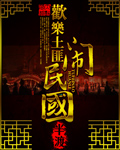LETTER 322
您可以在百度里搜索“The Works of Charles and Mary Lamb — Volume 6 艾草文学(www.321553.xyz)”查找最新章节!
LETTER 322
CHARLES LAMB TO BERNARD BARTON
[P.M. 10 July, 1823.]
Dear Sir—I shall be happy to read the MS. and to forward it; but T. and H. must judge for themselves of publication. If it prove interesting (as I doubt not) I shall not spare to say so, you may depend upon it. Suppose you direct it to Acco'ts. Office, India House.
I am glad you have met with some sweetening circumstances to your unpalatable draught. I have just returned from Hastings, where are exquisite views and walks, and where I have given up my soul to walking, and I am now suffering sedentary contrasts. I am a long time reconciling to Town after one of these excursions. Home is become strange, and will remain so yet a while. Home is the most unforgiving of friends and always resents Absence; I know its old cordial looks will return, but they are slow in clearing up. That is one of the features of this our galley slavery, that peregrination ended makes things worse. I felt out of water (with all the sea about me) at Hastings, and just as I had learned to domiciliate there, I must come back to find a home which is no home. I abused Hastings, but learned its value. There are spots, inland bays, etc., which realise the notions of Juan Fernandez.
The best thing I lit upon by accident was a small country church (by whom or when built unknown) standing bare and single in the midst of a grove, with no house or appearance of habitation within a quarter of a mile, only passages diverging from it thro' beautiful woods to so many farm houses. There it stands, like the first idea of a church, before parishioners were thought of, nothing but birds for its congregation, or like a Hermit's oratory (the Hermit dead), or a mausoleum, its effect singularly impressive, like a church found in a desert isle to startle Crusoe with a home image; you must make out a vicar and a congregation from fancy, for surely none come there. Yet it wants not its pulpit, and its font, and all the seemly additaments of our worship.
Southey has attacked Elia on the score of infidelity, in the Quarterly, Article, "Progress of Infidels [Infidelity]." I had not, nor have, seen the Monthly. He might have spared an old friend such a construction of a few careless flights, that meant no harm to religion. If all his UNGUARDED expressions on the subject were to be collected—
But I love and respect Southey—and will not retort. I HATE HIS REVIEW, and his being a Reviewer.
The hint he has dropped will knock the sale of the book on the head, which was almost at a stop before.
Let it stop. There is corn in Egypt, while there is cash at Leadenhall. You and I are something besides being Writers. Thank God.
Yours truly C.L.
[What the MS. was I do not know. Lamb recurs more fully to the description of the little church—probably Hollingdon Rural, about three miles north-west from the town—in later letters.
The thoughts in the second paragraph of this letter were amplified in the Elia essay "The Old Margate Hoy," in the London Magazine for July, 1823.
"Southey has attacked Elia." In an article in the Quarterly for January, 1823, in a review of a work by Grégoire on Deism in France, under the title "The Progress of Infidelity," Southey had a reference to Elia in the following terms:—
"Unbelievers have not always been honest enough thus to express their real feelings; but this we know concerning them, that when they have renounced their birthright of hope, they have not been able to divest themselves of fear. From the nature of the human mind this might be presumed, and in fact it is so. They may deaden the heart and stupify the conscience, but they cannot destroy the imaginative faculty. There is a remarkable proof of this in Elia's Essays, a book which wants only a sounder religious feeling, to be as delightful as it is original."
And then Southey went on to draw attention to the case of Thornton Hunt, the little child of Leigh Hunt, the (to Southey) notorious free-thinker, who, as Lamb had stated in the essay "Witches and Other Night Fears," would wake at night in terror of images of fear.
"I will not retort." Lamb, as we shall see, changed his mind.
"Almost at a stop before." Elia was never popular until long after Lamb's death. It did not reach a second edition until 1836. There are now several new editions every year.] The Works of Charles and Mary Lamb — Volume 6




